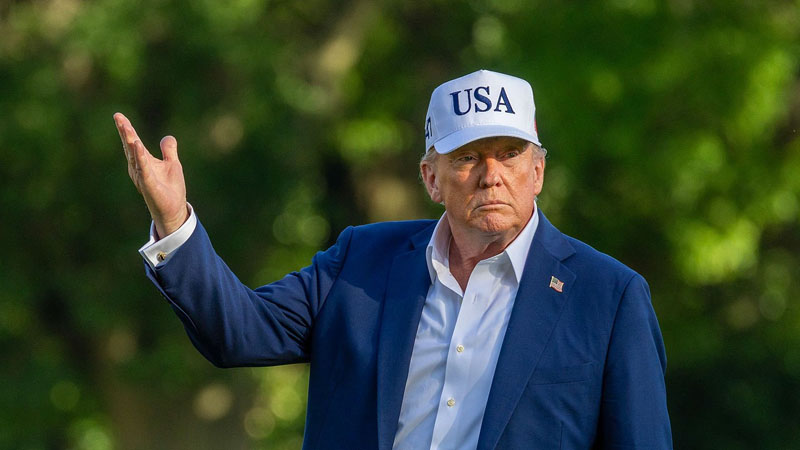Global leaders pushed back forcefully Monday against a series of aggressive trade threats issued by President Donald Trump on Truth Social, the social media platform he owns. Trump released 13 letters addressed to nations including Thailand, Serbia, and Tunisia, warning of new tariffs unless those countries addressed what he described as “many years” of trade imbalances with the United States.
The threats coincided with the implementation of fresh U.S. tariffs targeting key trade partners like Japan and South Korea, escalating international tensions.
The backlash was swift and widespread. Leaders of the BRICS coalition—Brazil, Russia, India, China, and South Africa—issued a joint statement condemning Trump’s approach, according to The Financial Times.
“The world has changed. We don’t want an emperor. We are sovereign countries,” Brazilian President Luiz Inácio Lula da Silva declared at a news conference. Lula further urged the global community to begin creating a trade and monetary system that is not reliant on the U.S. dollar.
South African President Cyril Ramaphosa, who had previous tensions with Trump during his time in office, also expressed disappointment.

“It is really disappointing that, when there is such a very positive collective manifestation, such as BRICS, there should be others who see it in a negative light and want to punish those who participate,” he said, as reported by The Financial Times.
Adding to the chorus of criticism, Russian Foreign Minister Sergei Lavrov seized the moment to position himself—and by extension, Russia—as a defender of multilateral economic principles. Despite Russia’s ongoing war in Ukraine and global condemnation of its invasion, Lavrov accused the United States of “flagrantly abusing” its dominant position in the world economy.
The BRICS bloc, which has been increasingly vocal about shifting away from Western-led global institutions, viewed Trump’s threats as emblematic of the economic pressure tactics they have long criticized. Analysts say the episode could further embolden the coalition’s push for alternative trade mechanisms and financial structures outside U.S. influence.
Meanwhile, the United States’ traditional allies, including Japan and South Korea, remained measured in their public responses but are reportedly preparing diplomatic responses through formal channels.
Trump’s latest rhetoric represents a continuation of the “America First” trade policy he championed during his presidency, one that often saw tariffs used as leverage against both allies and rivals.
With the 2024 U.S. presidential election cycle already underway, global leaders appear increasingly wary that Trump’s potential return to power could further destabilize international trade relationships.

